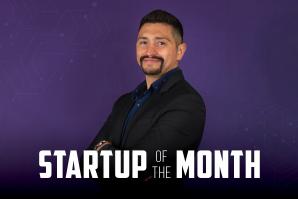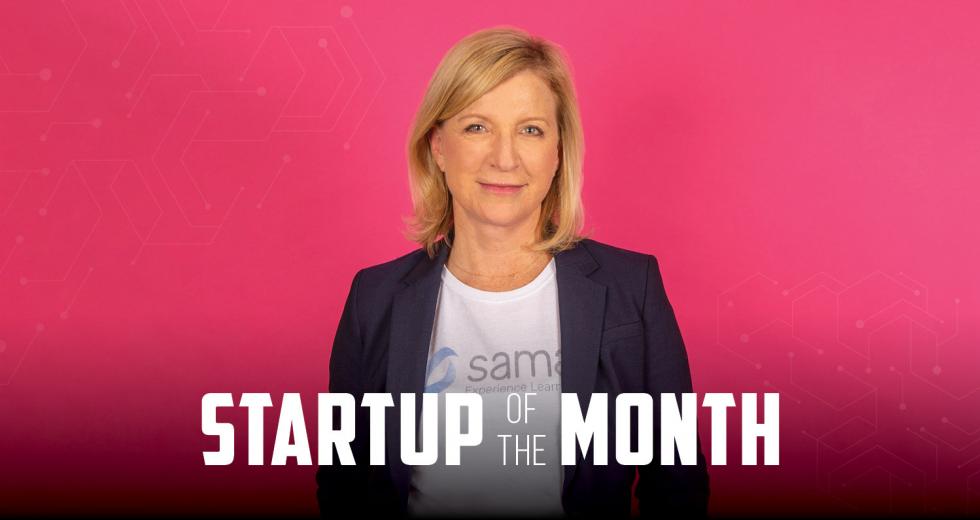Imagine a student manipulating spherical atoms to create different elements. Or balancing chemical equations with a laser pointer in 3D space.
This spring, COVID-19 forced schools to go online. But, for the most part, the teaching models remained the same. Sama Learning, a Nevada City-based startup, wants to transform those models, moving from standard lectures to active learning in virtual environments like the ones mentioned above.
“We’re not just taking what we do in a 2D space and applying it to (virtual reality),” says CEO and cofounder Barbara DeHart. “We’re taking what we know about diverse areas and building a new framework for learning in a 3D space.”
Click here to read more from our Startup of the Month column
DeHart, who has a background in media and entertainment technology, linked up with Christopher Tassone, a staff scientist at Stanford’s SLAC National Accelerator Laboratory, with a shared goal to improve STEM learning by combining the power of immersive technologies, data science and education research. To test its VR platform, Sama Learning held an efficacy study in 2018 with about 1,000 chemistry students at Loyola Marymount University, Stanford University and Chico State. On average, the students using VR technology improved by a full letter grade and 72 percent of students at Chico State showed some level of improvement.
With a team of six, Sama Learning used these findings to begin product development in 2019. The team believes the VR platform could be a valuable way to increase diversity in STEM fields. Moving beyond textbooks and lectures opens the door for different styles of learning.
“Our goal is to produce not only VR-based content but also develop content creation tools so others can develop courses using the same framework,” DeHart says.
In April 2019, a panel of 20 judges at the Capital Region ARVR Accelerator awarded Sama Learning best pitch. Jon Gregory, senior vice president and venture banking manager at Five Star Bank, is also a general partner at the accelerator. He says he was taken with the concept and leadership team of Sama Learning.
“I think there is great domain knowledge in Chris’s background in education at Stanford and Barb’s in growing and understanding markets,” Gregory says. “When I saw the impact of their tests with those three universities, I went, ‘Wow, I wish we had a tool like this when I was going to university.’”
Gregory praised the company’s ability to back up their technology with results — showing how a combination of visualization and data analytics could improve student outcomes. The global pandemic, he adds, gives Sama Learning a chance to prove their value even more.
“I think going forward, with the unfortunate crisis of COVID-19, we will likely have a need for more remote, virtual and online types of learning,” Gregory says. “Sama Learning has demonstrated they have a platform that could be really impactful, whether in the workforce or universities or other educational environments.”
After receiving partial funding from the National Science Foundation, the startup had launched a seed campaign, but fundraising efforts have been put on hold due to the coronavirus. If there is a silver lining, DeHart believes the shutdowns will help school systems see new learning possibilities through the continued evolution of ed tech.
“We see many education technology products that are based on hunches rather than research, education advances that focus on the back office rather than learning, and an industry that doesn’t utilize the power of technology to improve outcomes for students,” DeHart says. “This shutdown has removed many of the barriers we face and now is the perfect opportunity to do things differently. Technology and science can be an enabler.”
–
Get our Startup of the Month column and other web exclusives in your mailbox every week: Sign up for the Comstock’s newsletter today!
Recommended For You

Startup of the Month: RAIVES
Medical clip helps organize hospital room equipment
As a hospital assistant at UC Davis Medical Center, Tony Braham helps nurses lift and move patients. In other words, “We’re the muscle of the hospital,” Braham says, and his startup aims to help “the muscle” be more mobile.

Startup of the Month: Humaxa
A new model for employee-satisfaction surveys
Humaxa uses artificial intelligence and natural language processing to help employers boost productivity and satisfaction among their workforce.

Startup of the Month: Zennify
Consulting firm guides companies through digital upgrade
With industries moving at the speed of the internet, many companies have trouble keeping pace. Zennify, a Sacramento-based cloud solutions and consulting firm, wants to help legacy businesses catch up.




